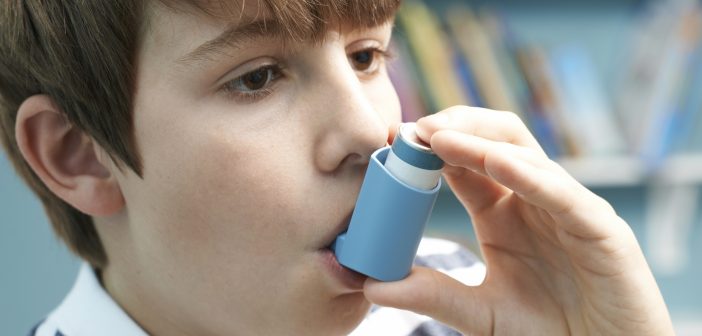Respiratory conditions in young children can be very serious and frightening.
I’m sure I don’t have to describe how scary it is waking to the sound of your child struggling to breathe in the middle of the night. My middle son was around 2 years old when he had his first episode of severe breathing difficulties. He was initially diagnosed with a “viral induced-wheeze”.
Due to their developing airways, asthma is difficult to diagnose in young children. It took couple of trips to the hospital before my son was prescribed a preventative inhaler and an asthma action plan.
When we relocated to a warmer climate, his attacks became less frequent and symptoms all but disappeared. I assumed (hoped) he was growing out of it and stopped giving him the preventative inhaler. He had infrequent times when he had a cold or virus when he required ventolin.
My son is now 9 years old and in the last 2 months has had a number of episodes where he has been short of breath, requiring ventolin. I realise he actually hasn’t outgrown it, and in fact his symptoms seem more consistent than before. It seems we will be going back to the doctor for a review and new asthma action plan.
I feel guilty for not maintaining his treatment and only dealing with his intermittent symptoms. Particularly after reading the findings of a recent study that indicates well-controlled asthma in young children leads to an increased chance of the child outgrowing the condition.

The National Asthma Council Australia recommends that effective management of asthma in children should involve the following steps to be undertaken by a medical professional:
- assessing pattern of symptoms
- assessing and avoiding triggers
- correct medication use and inhaler technique
- management of comorbid conditions such as allergies
- a written asthma action plan
Alarmingly, research shows that only 40% of Australian children with asthma have an articulated asthma action plan. Misuse of medication is also a common problem which can lead to a higher chance of hospitalisation in the event of a flare up.
It is also important that children, once they are old enough, understand how to manage their asthma.
Asthma Kids is a great online resource that helps educate kids about their asthma. It teaches them how to recognise an asthma flare up, what things can trigger an attack and how to properly take medications. It also shows kids how to help someone else who is having an asthma attack so is great for siblings and friends of asthmatic children.
Obviously, the end goal of effectively managing asthma in kids is quality of life. An asthma diagnosis should not stop your child from living a full, active and healthy life.


1 Comment
Something is going on with what we’re breathng, people from all walks of life are getting asthma, they’ve never had it before but all of a sudden theres a big influx of asthma patients in the last 2 years, this needs to be looked into.